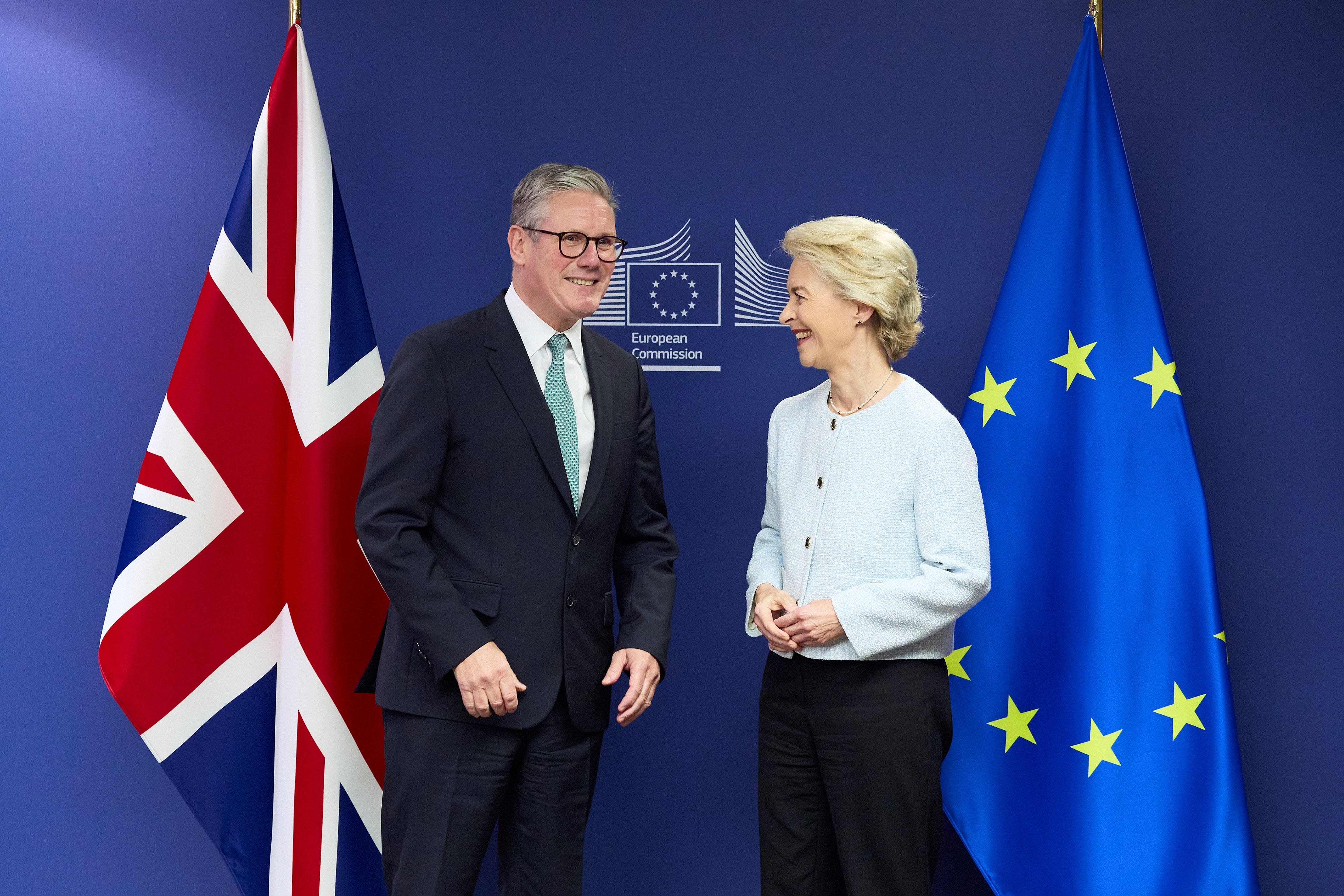Almost every musician has suffered from Brexit ‘hell’, industry warns in plea to Keir Starmer
Brexit has been ‘a catastrophe’ for the industry, with nine in 10 artists facing a hit to their earnings, UK Music’s annual economic report said
Leading artists have warned that “Brexit is hell” as a damning report revealed the damage of Britain’s departure from the EU on the UK’s music industry.
As the number of artists saying Brexit has hit their income rose from 82 per cent to 87 per cent, UK-based songwriter Victoria Canal said “it is expensive logistically and puts pressure on all of us”.
Producer Catherine Marks said the UK’s exit from the European bloc has negatively impacted recording budgets and caused increases in costs for British artists touring the EU.
UK Music’s annual economic report said Brexit has been a “catastrophe” for the sector, with artists still seeing fewer invites to perform in the EU and swathes of red tape when playing on the continent.
And, amid Sir Keir Starmer’s ongoing post-Brexit reset of relations with the EU, the industry body said: “A much more ambitious plan is needed to ensure the UK keeps pace with intensifying global competition.”
UK Music said last year the hit to UK artists’ income was broadly comparable with 2022 but had worsened for average and lower earners.
The report said: “Superstar artists such as Harry Styles, Elton John and Coldplay command attractive offers to play in the EU, and have the resources to manage the obstacles presented by Brexit.
“However, this is often not the case for road crews and supporting musicians who can find themselves restricted by the 90-day limit, or music creators who are not household names.”
The calls come weeks after a top soprano warned in The Independent that Britain risks losing its entire classical music industry due to post-Brexit red tape blocking UK artists from touring in the EU.

Of those affected by Brexit, their average earnings in the EU fell by 45 per cent, up from 22 per cent a year earlier.
Those with earnings of £25,000 or less on the continent saw a hit to their earnings in the EU of 60 per cent last year.
Brexit has created barriers to earning a living in the EU including that UK musicians are receiving fewer invites to perform, finding it is too expensive to perform even when they are invited, saying they have exceeded the 90-day limit for being in the EU and that they cannot find crew to work across Europe.
Ms Canal, a Spanish-American songwriter who moved to the UK to boost her music career, said: “Brexit is hell. It is expensive logistically, navigating routing and carnets, and it puts pressure on all of us. Whether you are an artist or crew, touring has a deep effect on mental health.
“It is incremental and cumulative. You get to a situation where you feel stuck. The financial situation has a knock-on effect, sharing beds and rooms, three or four people on the road doing multiple jobs.”
And Ms Marks, who produced and mixed Wolf Alice’s Grammy-nominated “Moaning Lisa Smile”, said: “Brexit has also had negative consequences for recording budgets. Pre-Brexit, many bands, especially at developing and mid-level, would use their touring income to top up their recording budgets.
“Since Brexit, touring costs have increased, and opportunities to tour the EU have decreased and so this also negatively impacts studios, producers and recording engineers.
“I consider myself fortunate as I am relatively established in my career, but the factors I describe impact me too. I am having to work weekends and long hours again as I feel the need to work on as many projects as possible.”
Labour’s election manifesto promised to “improve trade and investment relations with the EU… to help our touring artists”, after years of chaos since the UK crashed out of the bloc.

And UK Music called for Sir Keir to strike a deal with the EU to allow touring musicians to move freely across Europe and sell merchandise when on the road.
UK Music chief executive Tom Kiehl said the music industry could play a key role in Sir Keir’s mission to have the fastest-growing economy in the G7.
But he said the industry is facing “significant challenges” and is at a “tipping point”.
Mr Kiehl said: “This is not a time to be complacent, however. Far from it in fact.
“We are now at a tipping point, and if the problems we face are not addressed then future growth cannot be guaranteed.”
SNP MP Stephen Gethins told The Independent: “This compelling report is yet more evidence of the damage that Brexit is doing in the UK. It is damaging for public finances and makes life so much more difficult for our business.
“So as well as damaging the economy and costing the Treasury more money, it makes the UK government’s stated aim of growth measurably more difficult.
“It is high time that we had an open and transparent debate about the impact of a hard Tory Brexit that went further than anyone had ever argued for.”
And Dr Mike Galsworthy, chair of the European Movement UK, said: “UK Music’s research is incredibly important – and it supports the stories that we have been hearing from UK musicians for years: Brexit has made working in the EU so much harder for those working in the industry.
“Our Face the Music campaign is calling for the government to move forward as soon as possible with its pledge to cut the red tape around touring visas. It needs to be done now. Music from the UK is one of our greatest cultural exports.
“But if the artists and acts of the future can’t survive in the industry today, then the future Elton Johns and One Directions simply won’t be around in 10 years’ time."
Culture secretary Lisa Nandy said: “From global superstars like Harry Styles and Adele, internationally renowned festivals like Glastonbury and Parklife and a huge range of vibrant subcultures, the music industry is a real British success story.
“I am committed to ensuring that the government works with industry to build upon its current success in the years to come. By supporting vital grassroots venues, introducing new secondary ticketing protections for fans and ensuring all children can access high-quality music education in schools, we can help the sector go from strength to strength in the future.”
Join our commenting forum
Join thought-provoking conversations, follow other Independent readers and see their replies
Comments
Bookmark popover
Removed from bookmarks